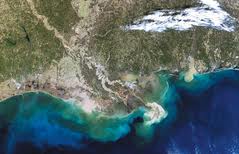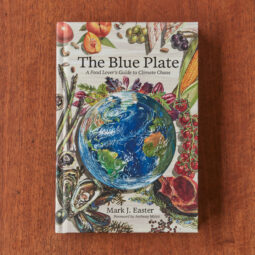 The Blue Plate in a Red-hot World (start time: 7:46) While adding cream to your morning cup of coffee, or digesting the hamburger that you grilled last night, you might not have been asking yourself, What’s the carbon footprint of these ingredients and meals? Understandable. Our guest today, ecologist Mark Easter, however, has pondered this question intensely for many years, when he grocery shops, plans his next meal, and researches. Easter is a so-called greenhouse gas accountant, one who measures the sources and sinks of GHG emissions from agricultural practices.
The Blue Plate in a Red-hot World (start time: 7:46) While adding cream to your morning cup of coffee, or digesting the hamburger that you grilled last night, you might not have been asking yourself, What’s the carbon footprint of these ingredients and meals? Understandable. Our guest today, ecologist Mark Easter, however, has pondered this question intensely for many years, when he grocery shops, plans his next meal, and researches. Easter is a so-called greenhouse gas accountant, one who measures the sources and sinks of GHG emissions from agricultural practices.
It’s a vexing and critical calculus. After all, agriculture generates more than 10 percent of U.S. greenhouse gas emissions. Easter’s debut book, The Blue Plate: A Food Lover’s Guide to Climate Chaos (Patagonia), has just been published. It highlights not just the causes of our climate crisis, but also a growing number of farmers, ranchers and orchardists who are practicing low-carbon, soil-enhancing methods on their land, and as a result boosting their crop yields and revenues.
Hosts: Susan Moran, Joel Parker
Show Producer/Executive Producer: Susan Moran
Engineer: Joel Parker
Headline contributors: Beth Bennett, Joel Parker, Shelley Schlender
Listen to the show here:
Podcast: Play in new window | Download (Duration: 27:46 — 25.4MB)
Subscribe: RSS



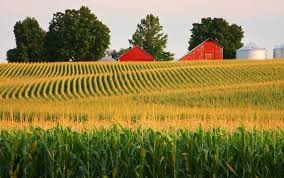
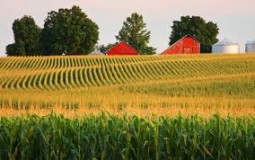
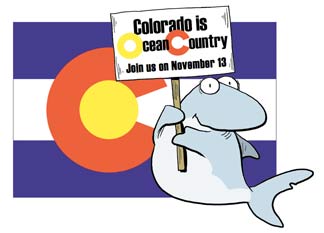
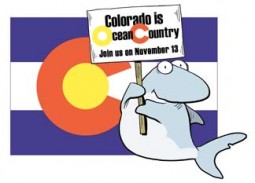 Feature #1 (time mark 5:30) When people think of Colorado, they usually don’t think about “oceans”. After all, Colorado doesn’t have much of a coastline these days, though it was definitely had oceanfront property a few hundred million years ago. However, being in a landlocked state doesn’t mean that there isn’t any thing we can do to impact the health and ecology of the ocean and marine biology. Co-host Joel Parker talks with Vicki Goldstein, founder and president of the
Feature #1 (time mark 5:30) When people think of Colorado, they usually don’t think about “oceans”. After all, Colorado doesn’t have much of a coastline these days, though it was definitely had oceanfront property a few hundred million years ago. However, being in a landlocked state doesn’t mean that there isn’t any thing we can do to impact the health and ecology of the ocean and marine biology. Co-host Joel Parker talks with Vicki Goldstein, founder and president of the 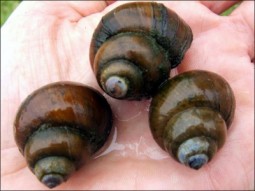 Feature #2 (time mark 14:10) Nitrogen – we can’t live without it, but you can have too much of a good thing. In its gaseous form nitrogen is harmless and makes up nearly 80 percent of the atmosphere. The worldwide population never would have reached 7 billion people without nitrogen, in the form of chemical fertilizer. But excess nitrogen –from fertilizer runoff, manure, human sewage and other sources is wreaking havoc on the environment. Co-host Susan Moran talks with John Mischler, a PhD student at CU Boulder, who is researching worms and snails in Colorado and Africa. He talks about how excess nutrients in ponds, lakes and elsewhere can lead to the spread of parasitic disease from trematodes to snails to us.
Feature #2 (time mark 14:10) Nitrogen – we can’t live without it, but you can have too much of a good thing. In its gaseous form nitrogen is harmless and makes up nearly 80 percent of the atmosphere. The worldwide population never would have reached 7 billion people without nitrogen, in the form of chemical fertilizer. But excess nitrogen –from fertilizer runoff, manure, human sewage and other sources is wreaking havoc on the environment. Co-host Susan Moran talks with John Mischler, a PhD student at CU Boulder, who is researching worms and snails in Colorado and Africa. He talks about how excess nutrients in ponds, lakes and elsewhere can lead to the spread of parasitic disease from trematodes to snails to us.